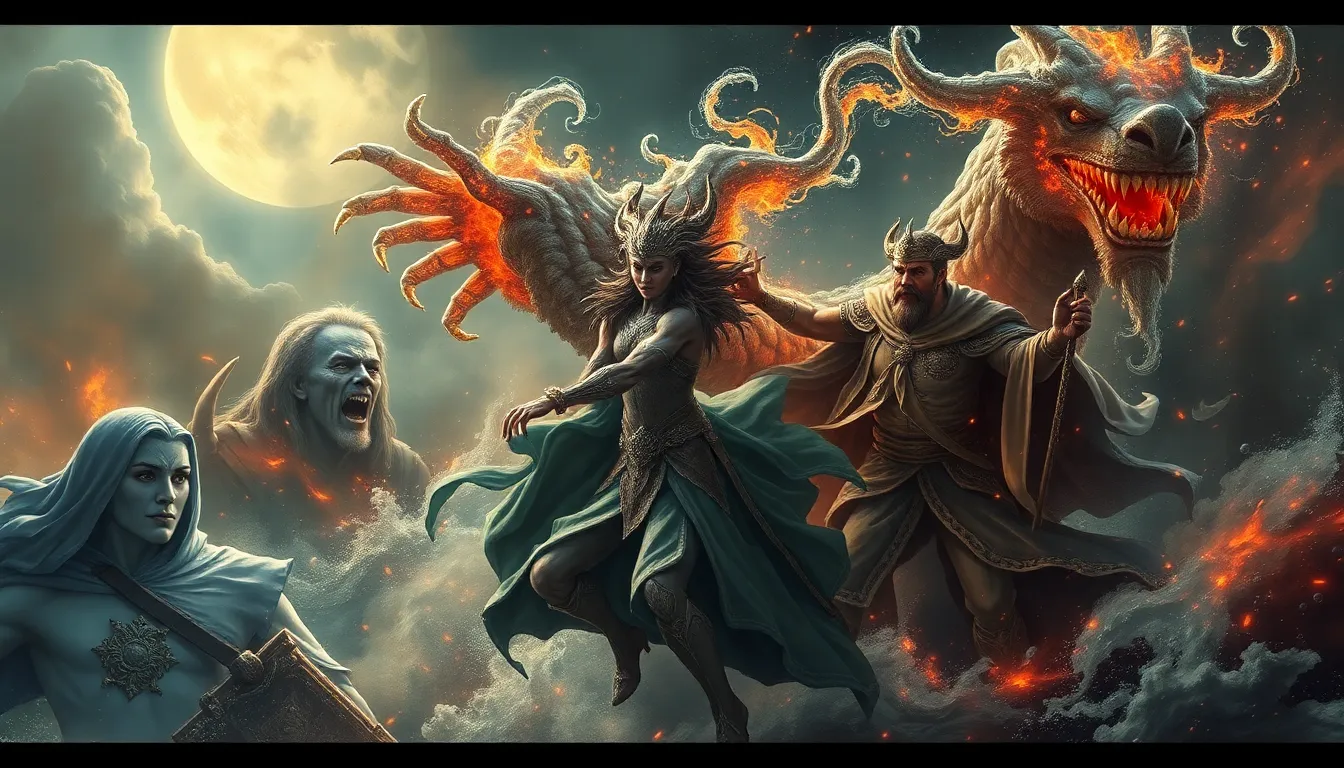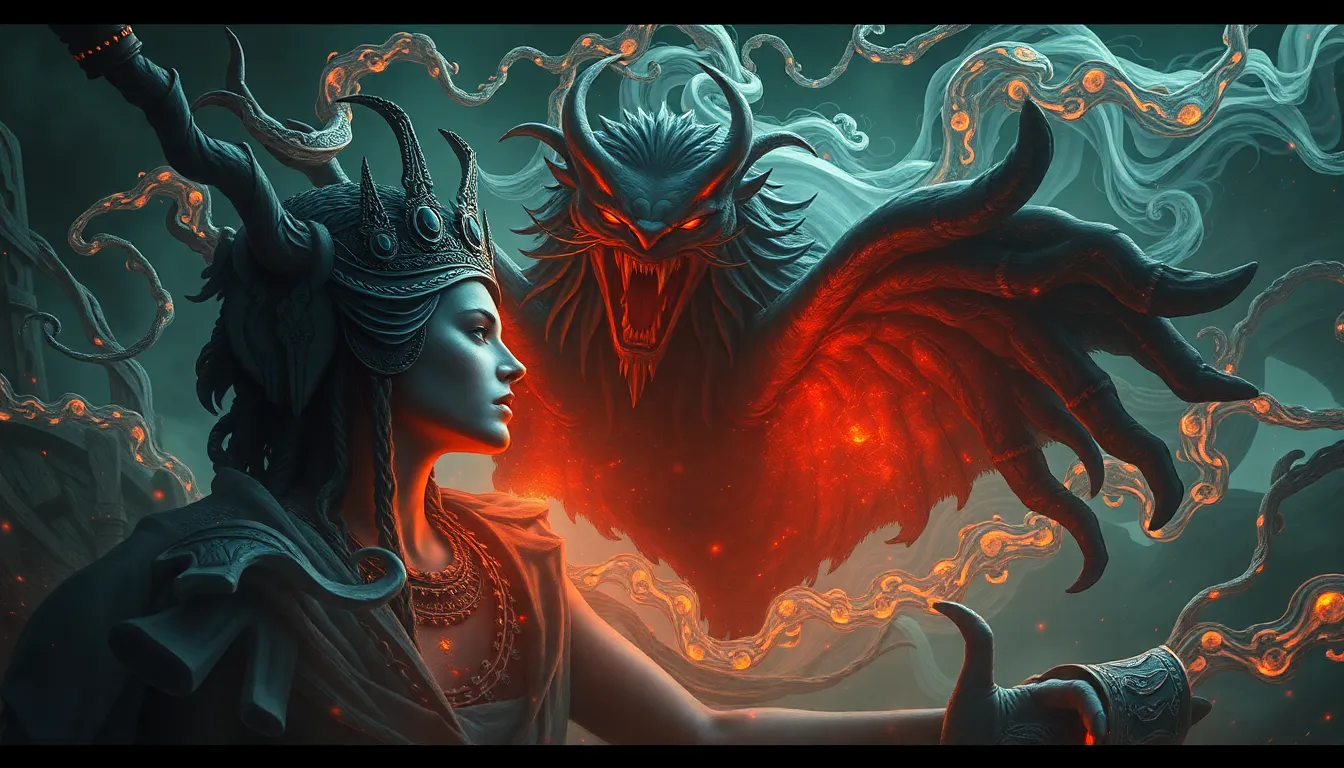Cultural Heroes: The Legends That Inspire Change and Growth
I. Introduction
Cultural heroes are individuals who significantly influence society through their actions, ideas, and values. They exemplify qualities that inspire others, often serving as symbols of hope and change. These heroes can emerge from various fields, including politics, arts, science, and social justice, playing a pivotal role in shaping cultural narratives and societal values.
The importance of cultural heroes lies in their ability to motivate individuals and communities to strive for betterment. They embody resilience, ethical integrity, and the pursuit of justice, encouraging others to follow suit. This article aims to explore the historical context, characteristics, and impact of cultural heroes, examining how they inspire change and growth in modern society.
II. Historical Context of Cultural Heroes
The concept of heroes has evolved over millennia. In ancient times, heroes were often larger-than-life figures celebrated in myths and legends, such as Hercules or Odysseus. These early heroes represented ideals of bravery and strength, serving as role models for their communities.
Throughout history, various cultures have produced their own heroes. For instance:
- Greek Mythology: Figures like Achilles and Odysseus showcased physical prowess and cunning.
- Indigenous Cultures: Heroes like Raven in Native American folklore symbolize wisdom and transformation.
- Modern Era: Figures like Mahatma Gandhi and Rosa Parks emerged in response to oppressive social structures.
Historical events, such as wars, social movements, and revolutions, often catalyze the emergence of cultural heroes, providing a backdrop against which their stories are told and celebrated.
III. The Characteristics of Cultural Heroes
Cultural heroes often share common traits that make them relatable and inspirational:
- Resilience: The ability to persevere through adversity is a hallmark of many cultural heroes.
- Integrity: They often adhere to strong moral and ethical principles, guiding their actions.
- Vision: Cultural heroes typically possess a clear vision for a better future, motivating others to join their cause.
These characteristics foster a sense of admiration and respect, making their stories resonate across generations. Resilience and perseverance are particularly significant as they demonstrate that the path to change is often fraught with challenges but can be overcome with determination.
IV. Cultural Heroes Across Different Disciplines
A. Heroes in Politics and Social Justice
Political and social justice heroes often emerge as champions of civil rights and equality. Notable figures include:
- Nelson Mandela: His fight against apartheid in South Africa and dedication to reconciliation inspired a global movement for justice.
- Martin Luther King Jr.: A leader in the American civil rights movement, his commitment to nonviolent protest and equality left a lasting legacy.
B. Heroes in Arts and Literature
Artists and writers often become cultural heroes by using their voices to challenge societal norms. Noteworthy examples are:
- Maya Angelou: Her works explore themes of identity, resilience, and the struggle for civil rights, inspiring generations.
- Frida Kahlo: Celebrated for her unique artistic style and exploration of identity, she became a symbol of individuality and empowerment.
C. Heroes in Science and Innovation
Scientific heroes contribute to advancements that improve human life. Figures such as:
- Marie Curie: Her groundbreaking research in radioactivity opened new frontiers in science and medicine.
- Albert Einstein: Renowned for his theory of relativity, he exemplifies the transformative potential of intellectual inquiry.
V. The Role of Cultural Heroes in Modern Society
Cultural heroes continue to influence contemporary movements, often serving as beacons of hope in challenging times. Their stories resonate on social media, where platforms amplify their messages and reach diverse audiences. This accessibility allows younger generations to engage with hero narratives, fostering inspiration and activism.
The impact of cultural heroes on youth is profound, as they provide relatable figures who encourage civic engagement and critical thinking. Educational institutions often incorporate these heroes into curricula, emphasizing their contributions to societal progress.
VI. The Mechanisms of Inspiration
Storytelling plays a crucial role in transmitting the legacies of cultural heroes. Narratives that highlight their struggles and triumphs create an emotional connection, making their stories memorable and impactful. The psychological effects of identifying with cultural heroes can lead to:
- A sense of belonging within a community.
- Increased motivation to pursue personal and collective goals.
- Encouragement to develop personal values aligned with those of the heroes.
VII. Challenges and Controversies Surrounding Cultural Heroes
Despite their positive influence, the concept of heroism is complex. Cultural heroes often have flaws and failures that can complicate their legacies. The debate over glorifying versus critiquing heroes raises important questions about accountability and authenticity.
Additionally, issues of cultural appropriation can arise when narratives of heroes are co-opted or misrepresented, leading to tensions within communities. It is essential to approach the stories of cultural heroes with a critical lens, recognizing both their contributions and shortcomings.
VIII. Case Studies of Contemporary Cultural Heroes
In the current social landscape, influential figures have emerged as cultural heroes, particularly in movements for justice and equality. Profiles of these figures include:
- Greta Thunberg: A climate activist whose passion for environmental justice resonates with youth globally.
- Malala Yousafzai: An advocate for girls’ education whose courage in the face of adversity has inspired many.
The contributions of these individuals are often analyzed in terms of their impact on society and the media’s portrayal, shaping public perception and engagement.
IX. Cultivating Future Cultural Heroes
Recognizing potential heroes in local communities is vital for fostering future leaders. Educational institutions and mentorship programs play a crucial role in nurturing heroism by:
- Encouraging critical thinking and civic engagement.
- Providing opportunities for youth to lead initiatives and advocate for change.
- Highlighting local heroes as role models to inspire action.
X. Conclusion
The significance of cultural heroes in driving change cannot be overstated. They serve as catalysts for social justice, innovation, and artistic expression, inspiring individuals and communities to pursue a better future. Recognizing and supporting emerging heroes is essential for cultivating a society that values resilience, integrity, and creativity. The ongoing legacy of cultural heroes will continue to shape our world, fostering growth and inspiring future generations to rise to the challenge of heroism.



